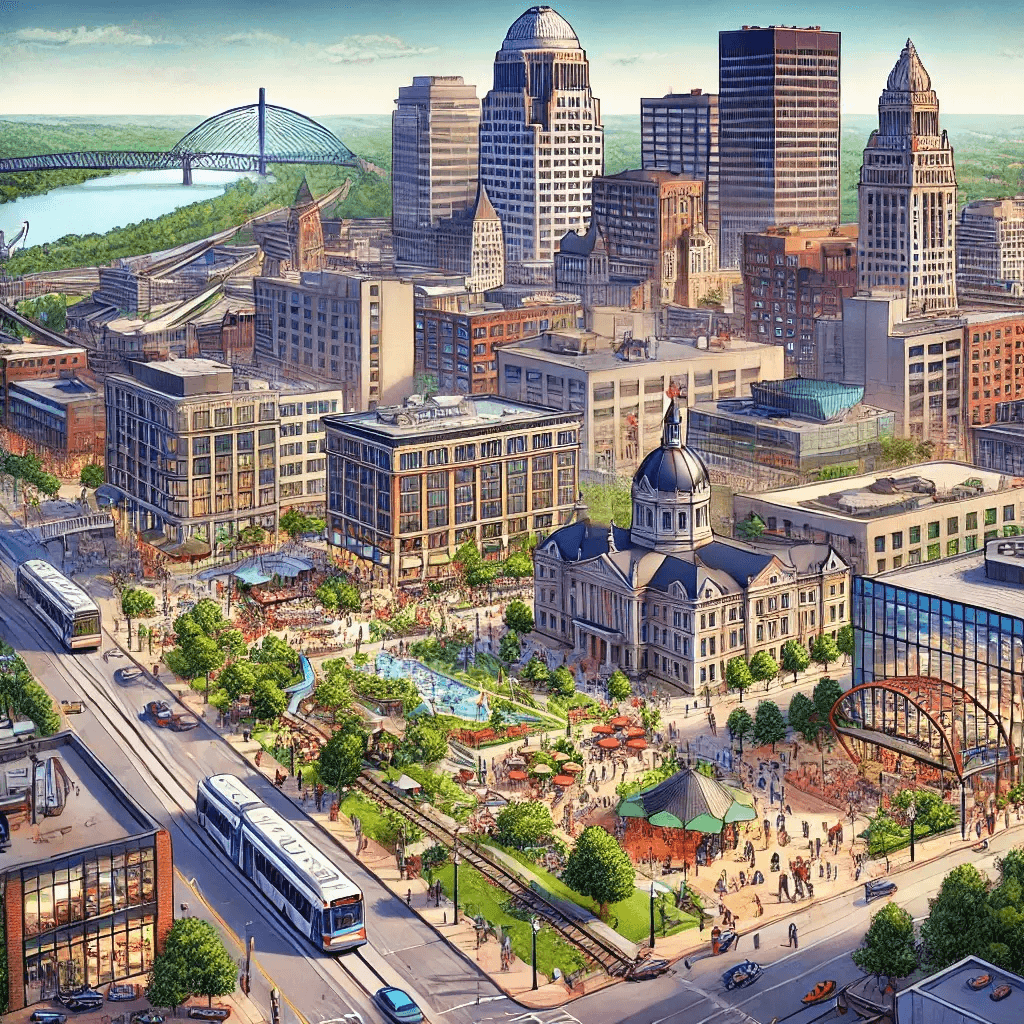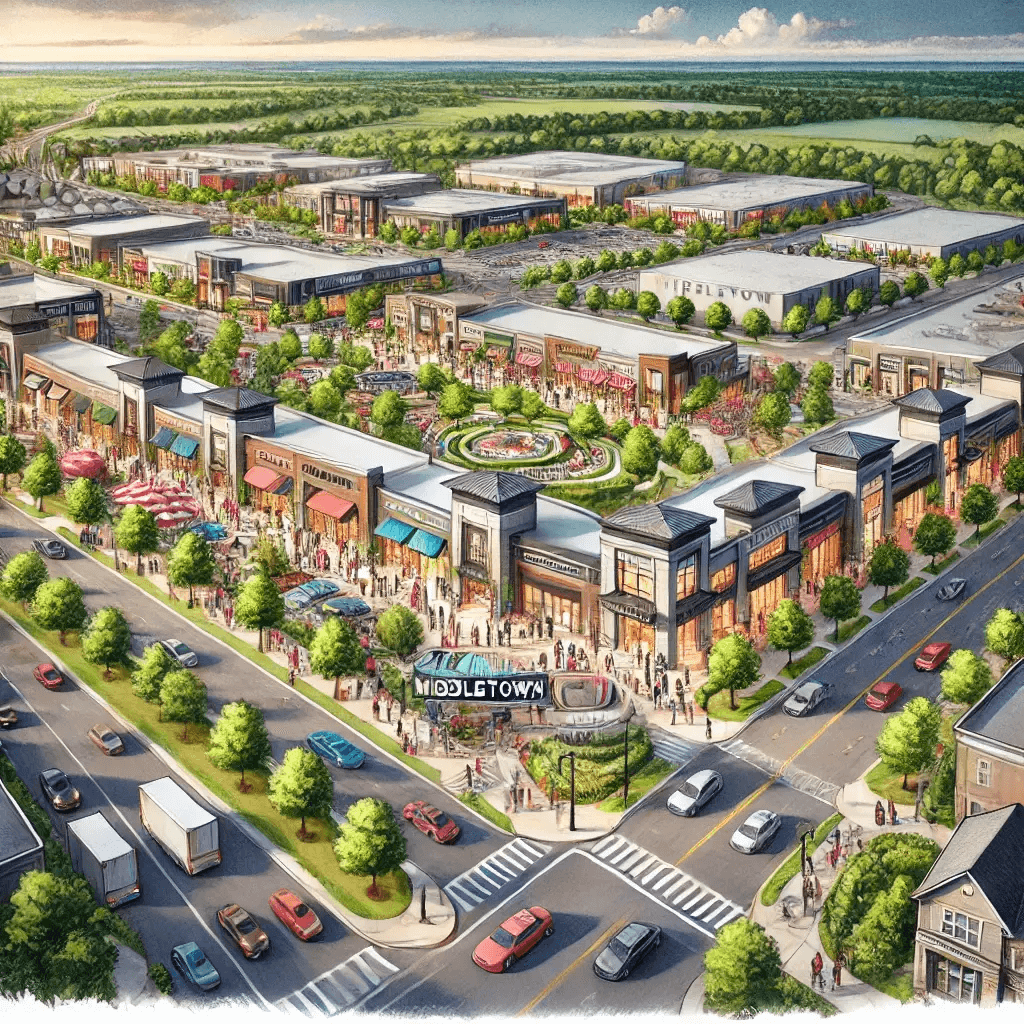Top 5 Places To Buy Retail Real Estate In Louisville
Louisville, Kentucky, is not just famous for its bourbon and horse racing—it’s also a thriving hub for retail real estate. As the city continues to grow economically and culturally, it offers a wealth of opportunities for investors looking to capitalize on its dynamic retail landscape. From historic urban districts brimming with charm to rapidly developing suburban areas, Louisville’s retail scene is as diverse as its population.
Retail investors are drawn to Louisville for its strategic location, which places it within a day’s drive of more than half the U.S. population, as well as its strong infrastructure and vibrant consumer base. The city’s ongoing commitment to development and its unique blend of history and modernity make it a promising destination for retail ventures. Whether you’re an experienced investor or exploring your first retail property, understanding Louisville’s key areas can help you make an informed decision.
Here are the top five locations in Louisville that stand out for their retail potential, each offering unique advantages to meet the needs of diverse investors and business owners.
Table of Contents
Toggle1. Downtown Louisville

Downtown Louisville is the heart of the city and a magnet for tourists and professionals alike. This area boasts high foot traffic thanks to its mix of attractions, including:
- Landmarks like the KFC Yum! Center, Muhammad Ali Center, and Louisville Slugger Museum.
- A growing number of high-end hotels and residential developments.
- Major events, such as concerts, conventions, and sports games, that draw large crowds.
Investing in downtown retail offers access to a steady stream of customers from diverse backgrounds. Fourth Street Live!, a premier entertainment and retail district, epitomizes the potential of this area. Retailers here benefit from being part of a dynamic, high-energy environment that includes restaurants, bars, and boutique stores. Downtown is also experiencing a revitalization, with historic buildings being repurposed into mixed-use spaces, creating opportunities for modern retail outlets while preserving the city’s character.
2. Bardstown Road/Highlands
Known for its eclectic vibe, Bardstown Road in the Highlands is one of Louisville’s most distinctive retail corridors. This area thrives on its:
- Unique mix of independent shops, cafes, and restaurants.
- A steady flow of both locals and tourists seeking authentic experiences.
- Proximity to residential neighborhoods filled with young professionals and families.
Bardstown Road’s charm lies in its support for small businesses and niche markets. Investors here can tap into a vibrant, trend-savvy demographic that values individuality and local craftsmanship. The area’s reputation as a cultural hub makes it an excellent choice for specialty stores, artisan boutiques, and trendy dining concepts. Additionally, its walkable layout and lively nightlife ensure consistent foot traffic throughout the day and evening.
3. St. Matthews
St. Matthews, located in eastern Louisville, is a retail powerhouse that combines established shopping destinations with an affluent customer base. Highlights of this area include:
- Two major shopping centers: Mall St. Matthews and Oxmoor Center.
- A blend of national retailers, local businesses, and upscale boutiques.
- Proximity to high-income residential neighborhoods, ensuring a consistent flow of shoppers.
The Mall St. Matthews and Oxmoor Center are particularly attractive for investors seeking stable returns. These shopping centers have remained resilient despite the rise of e-commerce by integrating entertainment and dining options alongside retail. Furthermore, St. Matthews’ central location and easy accessibility make it a favored destination for Louisville residents. The area also has opportunities for smaller strip malls and standalone stores, catering to diverse retail needs.
4. Middletown

Middletown is a rapidly growing suburb that has emerged as a hotspot for retail development. Its appeal stems from:
- New residential communities driving increased demand for retail services.
- A variety of strip malls, standalone retail spaces, and mixed-use developments.
- Excellent connectivity via major roads like Shelbyville Road and I-265.
What sets Middletown apart is its potential for future growth. The influx of new residents has created a demand for diverse retail options, ranging from grocery stores to specialty shops. Developers have also been incorporating green spaces and pedestrian-friendly designs into new projects, enhancing the appeal of shopping centers in the area. For investors, Middletown represents an opportunity to enter a market on the rise, where property values and consumer spending are poised to grow significantly.
5. Jeffersontown
Jeffersontown, or J-town, offers a unique blend of suburban charm and commercial opportunity. Key features of this area include:
- A growing residential population supported by a robust industrial base.
- The Gaslight District, a charming area filled with local shops, restaurants, and historic architecture.
- Popular community events, such as the annual Gaslight Festival, which attract thousands of visitors.
The Gaslight District, in particular, offers a unique retail experience that blends nostalgia with modern convenience. Investors in Jeffersontown can benefit from a close-knit community atmosphere and the opportunity to cater to loyal, local customers. Additionally, the area’s strategic location near major highways ensures easy accessibility, making it an attractive option for regional retailers.
Why Louisville for Retail Real Estate?
Louisville’s retail landscape is bolstered by several key factors, including its strategic location within the U.S., a strong economy, and a diverse population. The city’s unique blend of historic charm and modern development creates a rich tapestry of opportunities for investors to cater to various customer demographics.
Another factor driving Louisville’s retail success is its commitment to infrastructure development. The city has made significant investments in roadways, public transportation, and urban revitalization projects, ensuring that retail hubs remain accessible and attractive. Furthermore, Louisville’s burgeoning tourism industry—fueled by events like the Kentucky Derby and a growing bourbon trail—provides an additional boost to the retail market.
Conclusion
From the bustling streets of downtown to the suburban charm of Jeffersontown, Louisville provides ample opportunities for retail real estate investment. Whether you’re targeting high-traffic urban areas or rapidly growing suburban neighborhoods, these five locations represent the best options for securing a profitable foothold in the city’s dynamic retail market. By understanding the unique characteristics of each area, investors can align their strategies with the city’s evolving trends and maximize their returns.
Start Your Louisville Retail Investment Journey Today!
Whether you’re looking to capitalize on high-traffic urban hubs or thriving suburban markets, now is the time to explore the best retail opportunities in Louisville. Let’s discuss how you can secure a profitable retail property in the city’s most sought-after locations. Call 502-536-7315 or email raphael@sumcg.com to get expert insights and start building your retail portfolio!
